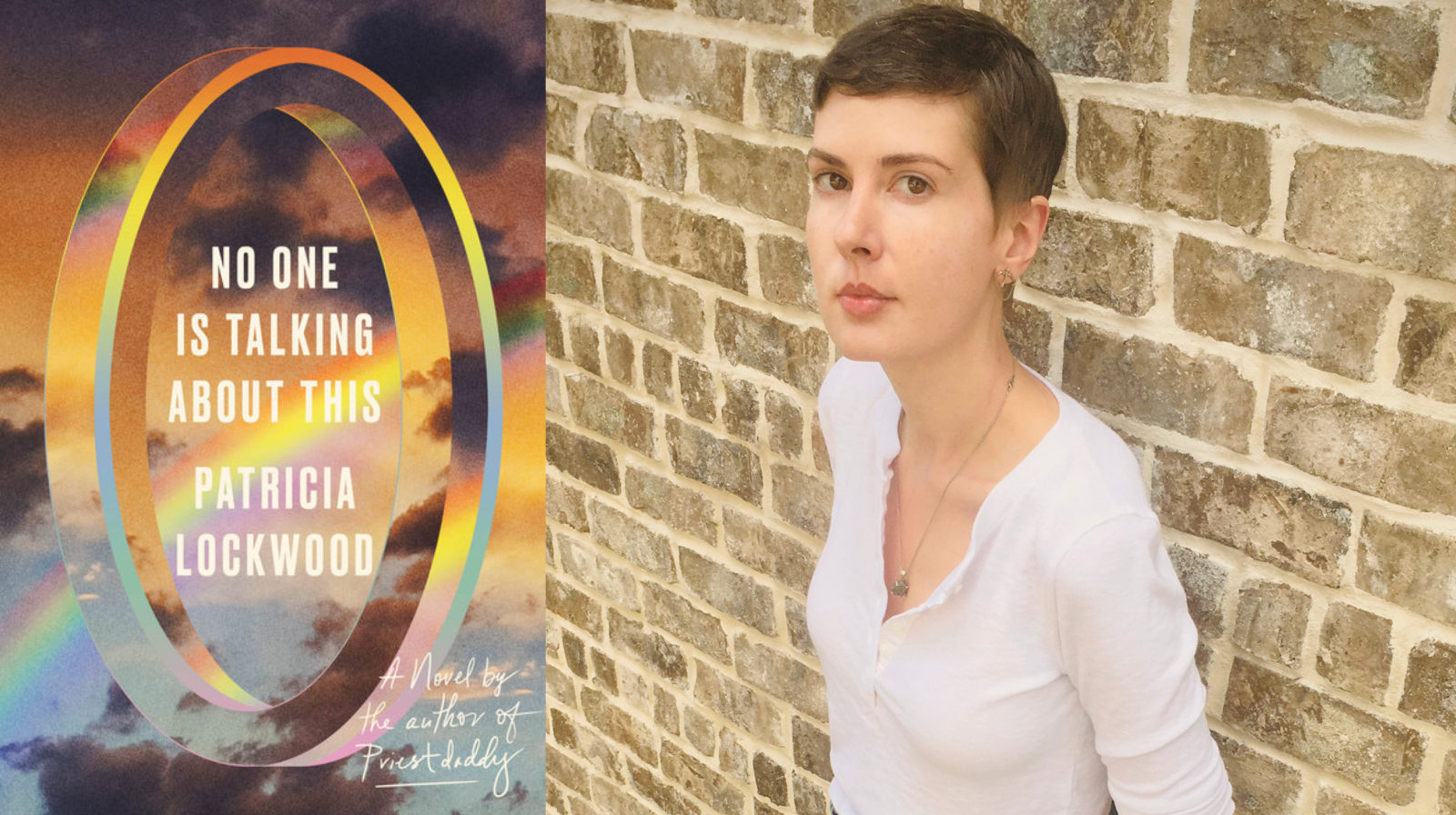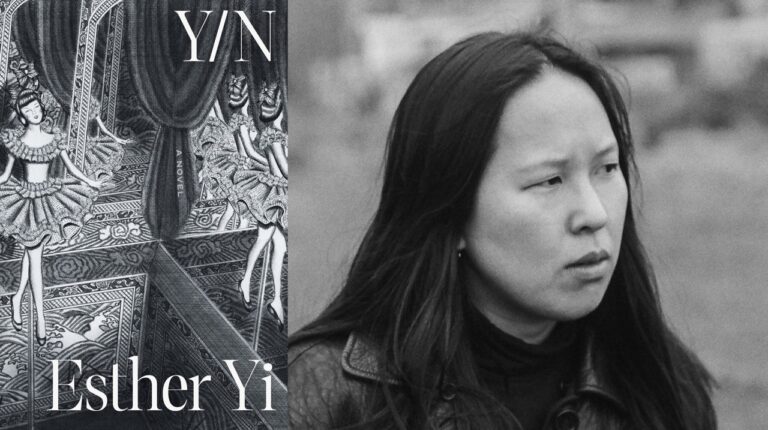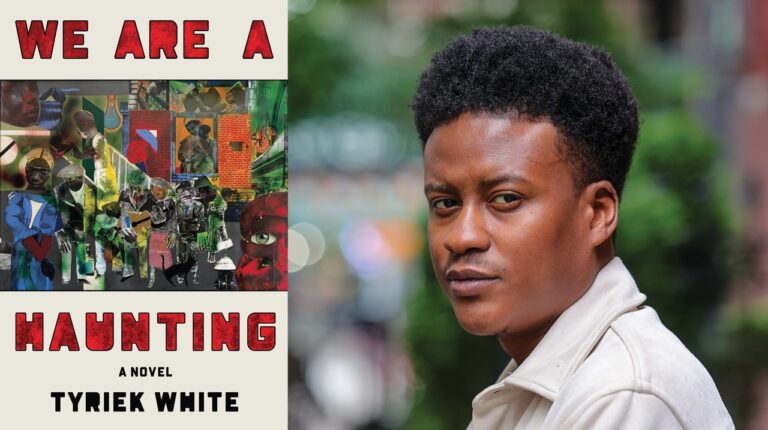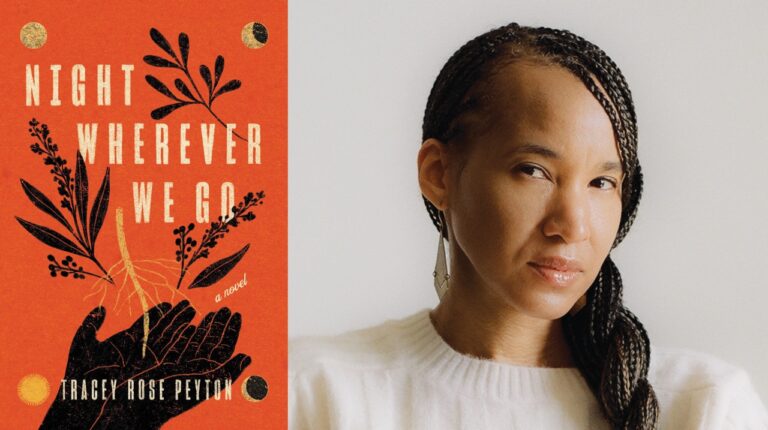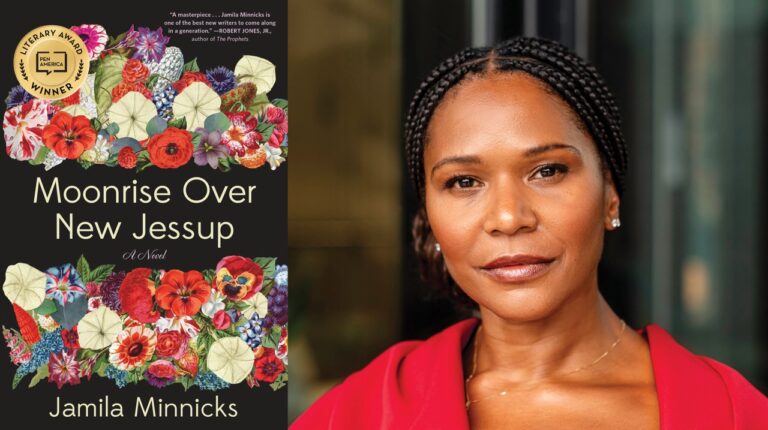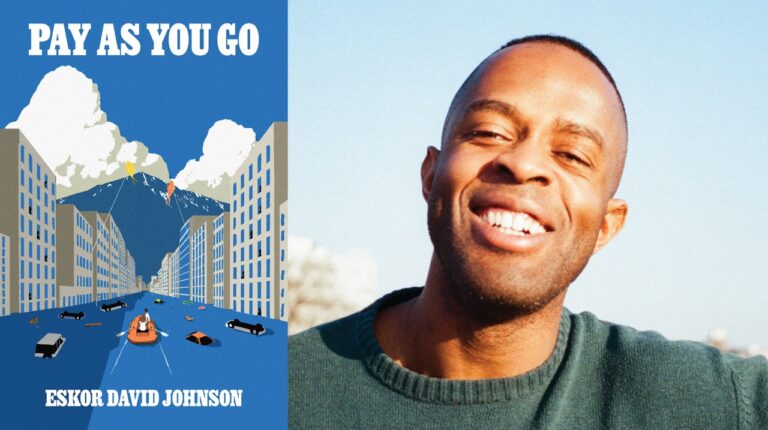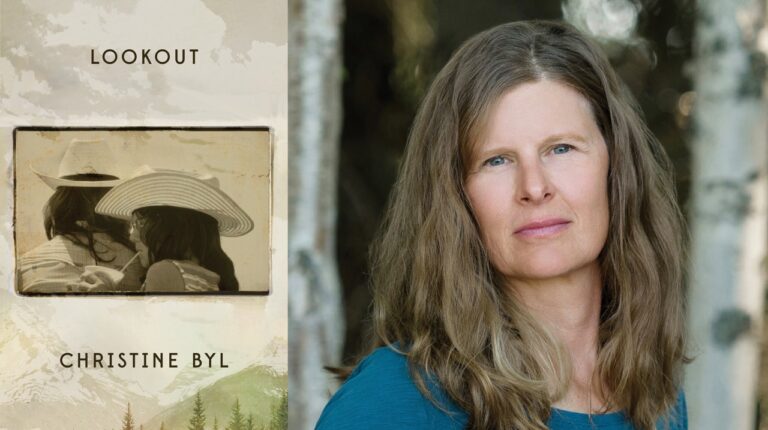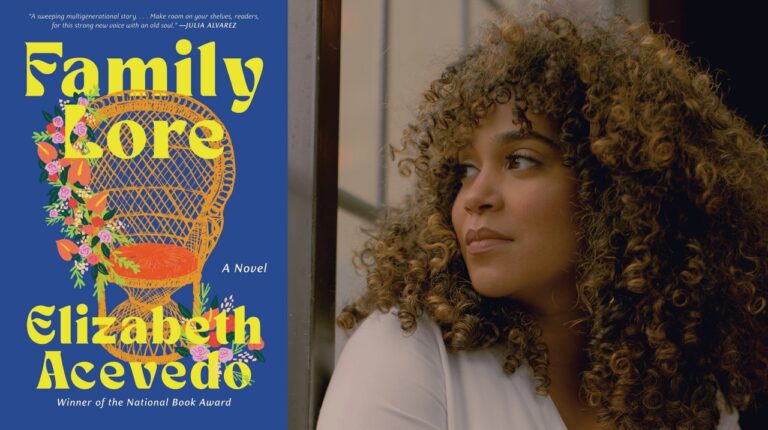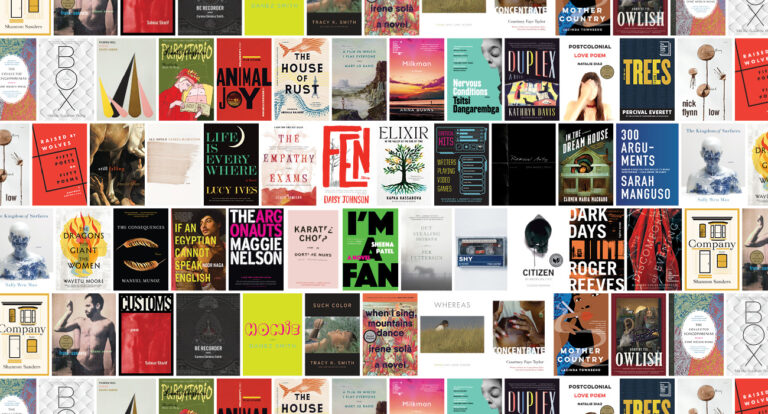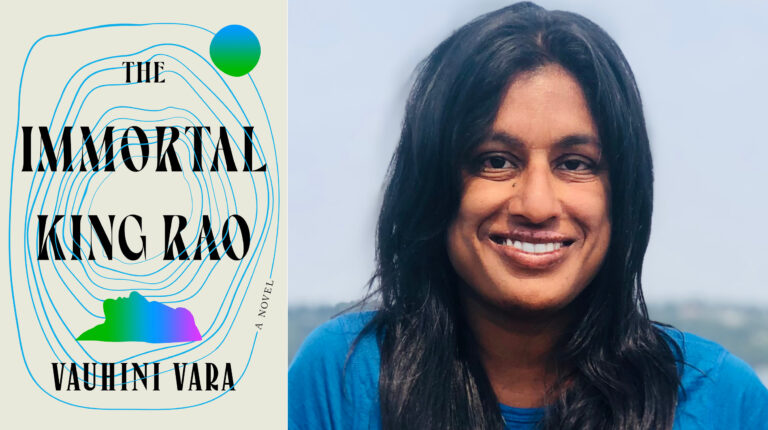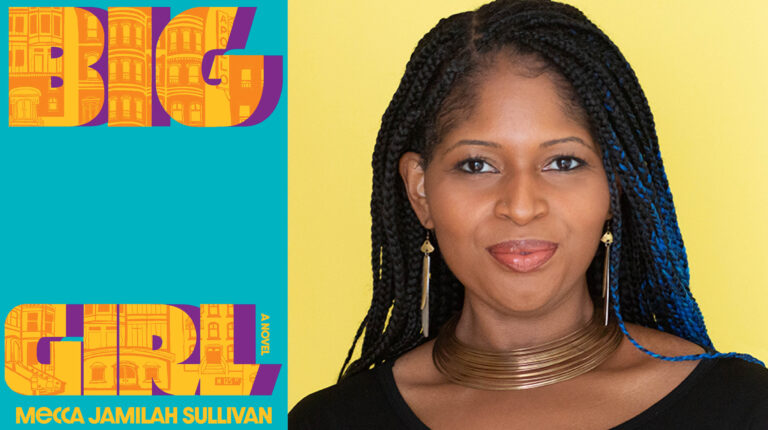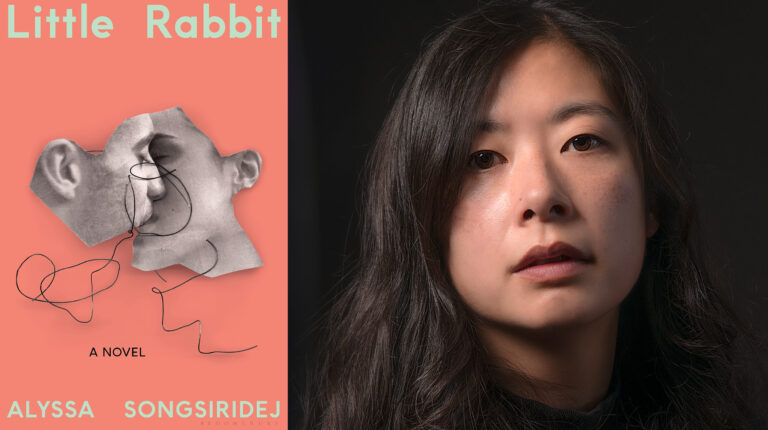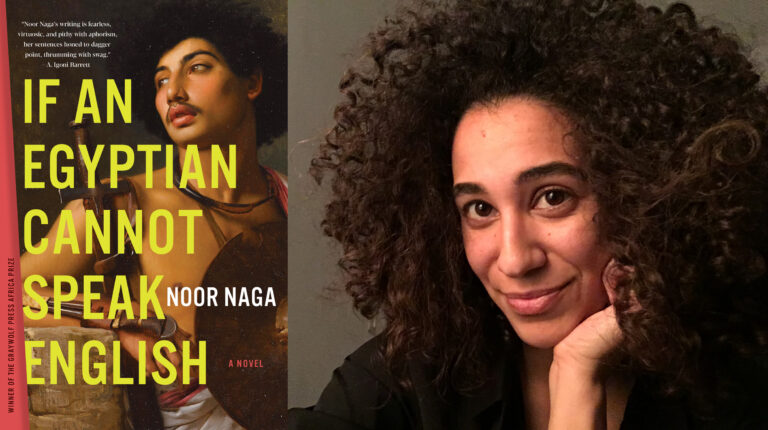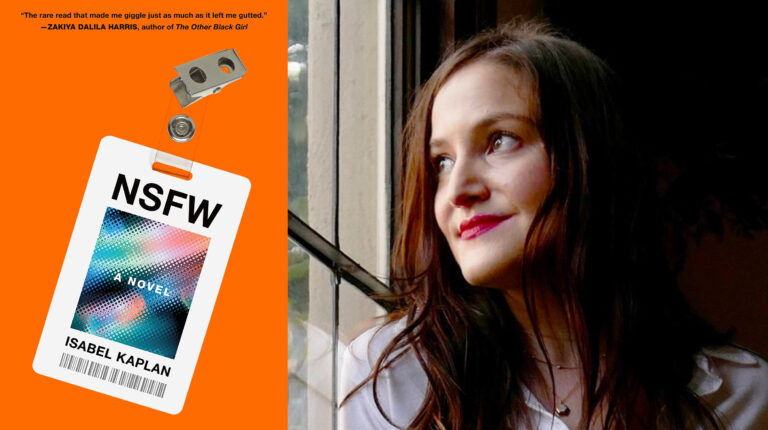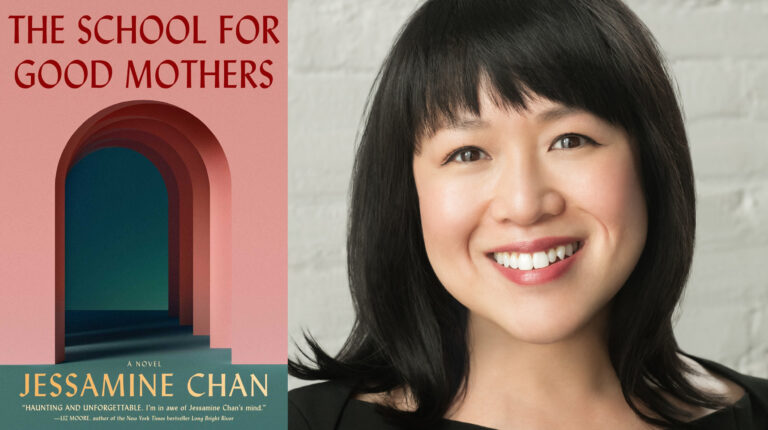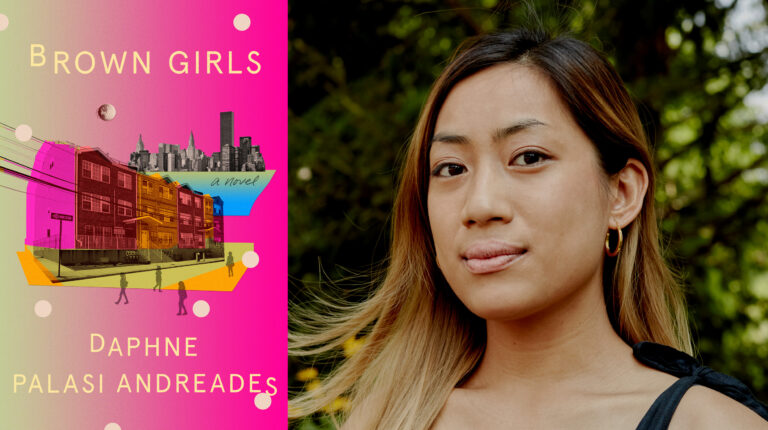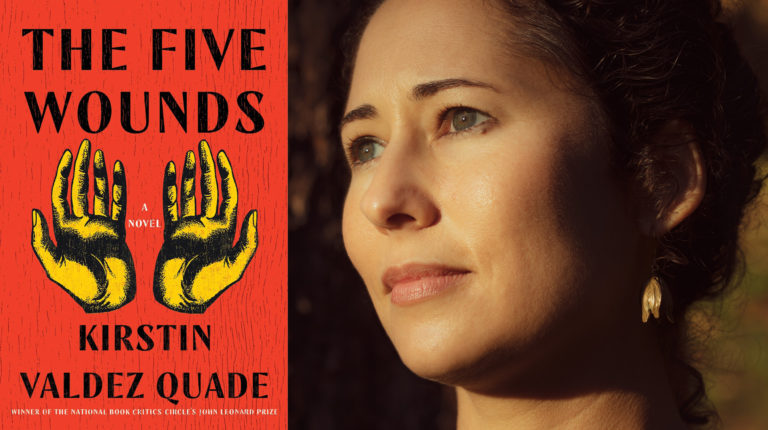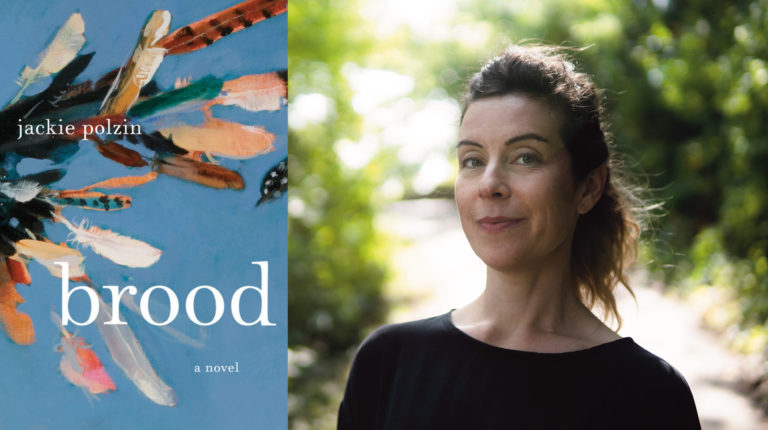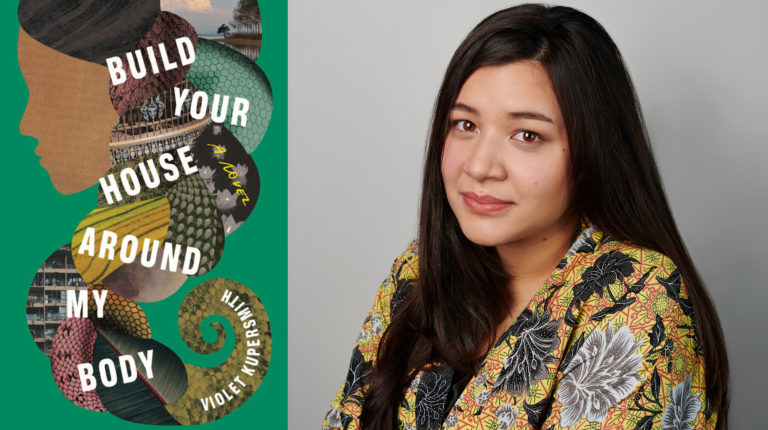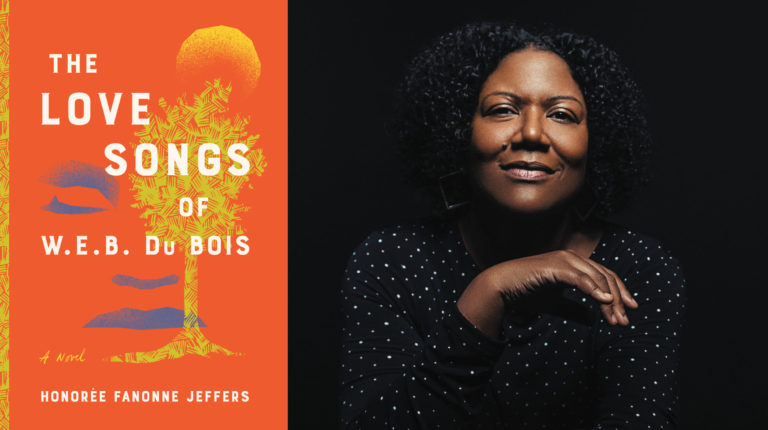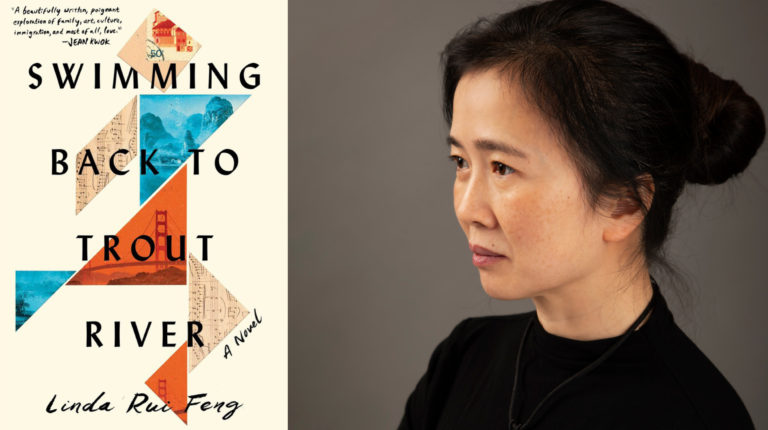Sandia Ashley, Bookseller, interviewed Patricia Lockwood, author of No One Is Talking About This, in celebration of being shortlisted for the 2021 First Novel Prize. In this genre-defying book, a woman who has recently been elevated to prominence for her social media posts is already struggling to grapple with the absurdity of what she terms “the portal” in the face of looming existential threats, when a personal tragedy pierces the fray of her attempts to lose herself ever deeper into the void. As real life and its stakes collide with the antics of the portal, the woman confronts a world that seems to contain both an abundance of proof that there is goodness, empathy, and justice in the universe, and a deluge of evidence to the contrary.
What was the first kernel of the idea for this book? What couldn’t you stop thinking about that led to creating this story?
I’m happy that I have a really specific moment that happened on a really specific day so that when people ask me about this I can be like, “Yes! I have a moment! I know what it was!” We were moving apartments and I was hiding from my husband so I wouldn’t have to help him and I was in my room with all my cats reading Mrs. Caliban, a masterpiece by Rachel Ingalls. She has this very interesting way of describing the character’s day in it, where she’s just going along about her day, doing the dishes, when she hears these supernatural radio broadcasts, and for some reason lightning struck me on that point. I thought, “What would happen if I described my days just as they were?” They don’t feel like days of the past. So yes, it was me shirking my duties. It was Rachel Ingalls. It was the dry sort of reportage of this novel where I thought I could do that and it could be interesting.
What were your biggest challenges with writing this book?
Not having it be 4,000 pages was the main one. The first part especially I could’ve just written and written and written and written and never come to an end whatsoever. When I took the turn of the second part a clear ending came into view, but I also didn’t want the book to end that way—and if you’ve read the book you’ll understand why. It wasn’t necessarily the integration of the two halves or the integration of the two tones, it was that I could’ve had that first half just stretch on forever.
It’s perfect because reading that first part is so similar to the experience of being online. It propels you, you just keep coming up with more and more and more and more. How do you ever stop?
It just keeps happening, and it’s also a thing that you can read forever. That’s what’s so frightening about it. You can lose entire days from “just one more thing, just one more thing.”
Yeah, we’re essentially scrolling your novel.What was your writing practice like?
It was unusual for me. I had a lot on my plate. The modern job of a writer, at least one that enables you to make a living, requires you to do a lot of things on the side, so I was travelling and I was on planes a lot. I had a .doc file on my phone and I could write something, one of these little vignettes, in one of these small spaces of time that were available to me. You could also move them around like little Tetris blocks. It was something that you could do on your phone, which you don’t want to admit but which is kind of relevant to the book and to how people read it. So, yeah, a large part of my process was finding these tiny chunks of time and filling them with these tiny chunks of something else. I do find that I describe it in terms of “chunks” a lot.
What do you find has carried over from writing poetry and memoir, and what have you discovered about writing that feels new with fiction?
The memoir part is really obvious—the second half is very true to life—but the poetry thing is more integral because, if I’m honest about it, this book was the same as poetry to me. It had the same snap, it had the same formation, every little chunk—call back—that I wrote had that echo of poetry, which is where I started. I’ve also written prose poems that are more like lyric essays, things that really blend genre. As a poet I always had people asking me, “Why is this poetry,” or “Is this poetry,” so I could’ve insisted that this book was poetry as well and let those questions come to me, let the fury of the world surround me.
Your writing is very cyclical. There are a lot of moments that do come back; there’s reprise and there are themes and there are lines that keep reappearing, which felt very much like that practice came from poetry.
Yeah, and I used the triples. Always look for the triples in my sentences. You’ll see them in my essays, you’ll see them in my poetry, you’ll see them in this. Anytime I want to hit someone over the head I’ll do triples. Three clauses in the sentence and, bam, I feel like a god.
What are some larger conversations or topics that your book speaks to or engages with?
I almost never—and maybe this is my problem—feel like I’m participating in a conversation at all. I do think that in a sense I write monologues, which can be both a strength and a failing. I think that maybe in reading my books you may have the sensation that a person is standing alone in a room declaiming to herself. I do think that is a strength but I do think that is something to ask me, “Why don’t you participate as much in the discourse in the outside world?” I noticed when I was first on Twitter it was a creative space for me. It was a space where I would go with an idea and I would put the idea immediately into that place that I call the portal in the book. But the longer I was on there, the more I would go there just to read and be silent, to go and stand in the corner and observe what was going on around me. That is not conversational; it’s observational, it’s witnessing, it’s maybe something else—this stealing of the lifeblood of what other people are doing—it’s something I’ve always participated in. But you can certainly say that if you remove the book from me and my ideas about things that it participates in conversations about technology and surveillance and solipsism, narcissism, grief. All of these things are inherent in it, but it just doesn’t feel like anyone else is standing in there with me as I’m talking about them.
One thing that struck me while reading the book is how much anonymity is granted to your protagonist, while in the portal that may not be true, so it’s interesting to hear that because it does feel very much like there’s just one person monologuing alone in a room, but you also still have that obscurity about the person themself.
This is a really good observation and it’s something that I do technically, particularly in the first section. I have the protagonist travelling in and out of pronouns, opinions, groups of people. She’ll sometimes slip into the pronoun “we,” where does that come from? Then she’ll sometimes slip into an opinion that she clearly doesn’t agree with while still using the pronoun “we” and it’s satirical, or it’s horrified, or it’s something else. You feel like a protoplasm in the portal, you don’t necessarily feel like a person. You’re moving among these different containers, and you’re sometimes flowing between different containers, you’re sometimes inhabiting those containers, so I wanted to reproduce that feeling. Do you feel like you’re really among other people when you’re online or do you feel like you’re by yourself?
Speaking of being online, you’ve been hailed as the Poet Laureate of Twitter. How do you feel writing this novel has affected or changed your own relationship with “the portal”?
I believe that the change happened before I started writing this book. When I came into that time of great grief in my life when I was with my sister and I was with my niece and we didn’t know how much time she had to live, this was something where you didn’t want to be on Twitter all the time. If you had your phone in your hand, maybe you were taking pictures of her, or maybe you were playing her music, and you just wanted to pay attention to her and you didn’t want to slip into that place again where you didn’t know if you were a person or not, or whether or not you believed what was in your own mouth.
You wanted to do something different with technology, and with the idea of the person who occupies that technology. You can still be grateful for it, you can still appreciate the different uses for it. There’s that part in the end of the book when the sister is talking about how even a few years ago they wouldn’t have the technology to be able to take pictures of her all the time or be able to watch her in the hospital while she was sleeping or be able to communicate with the nurses. You wouldn’t be able to do all these things if it were not for this technology that’s also ruining the entire world and the entire planet. So it’s very difficult to know what to do with that information. A lot of people have talked about the second half of the book being a denunciation of the first and I don’t think it’s that easy. It’s still a place where we live, it’s still a place where she wanted to put her niece’s photograph, her niece’s story. She understands that it’s a planet and that it’s a planet that’s in its own way burning too, but she still lives there.
Something that many people are discussing is the fact that though your title is No One is Talking About This everyone is in fact (and for good reason!) talking about this book. How have you felt in regards to the response the novel has received?
It was a lot. I tried to change the title of it right before I turned in the final draft because I thought every single thing, every interview, every review is going to use the title and it came to seem too much. But I was not allowed, because it is a really good title. But, I would say, I felt very exposed by all the coverage and that has been true of me in the past. I don’t know if it would’ve been different if we hadn’t been in lockdown conditions or if I hadn’t been ill the previous year. I don’t know how it would’ve felt, but it did feel like the eyes of the world were boring in on me. I had strangely a lot of anxiety about reviews and profiles coming out that I didn’t necessarily have before. It must’ve been something about so many of us being in our houses and not being able to actually connect. It’s not like I was standing in a park where people were coming up to talk to me about this, it’s not like I was going to the newsstand to buy a physical paper with the review in it. All of this was happening in this cell inside my house and paradoxically I did feel very exposed.
I think that makes sense though, and in a way it’s fitting to have it happen in the portal.
Right and that was really great for the people writing about it but the experience of it felt very raw, as if the attention of it was scraping over my skin. But, it was unusual for me, and I do think that part of it was the illness. But yes, many people did talk about how it made sense to do an entire promotional tour on the internet. All of it did feel appropo, but you still wish for something else, to be in real rooms with real people.
Since this is your debut as a novelist, what do you hope this book says about you as a writer? What can we expect more of from you in the future?
That I will do anything and call it whatever I want. There is questioning about where you go from here if you’ve written something that is such an unconventional novel, and when you’ve worked in the past in so many other genres. Is the next thing you do going to be fiction, or what? It’s going to continue to be just this material, just this thing that you’re writing that you’ve come to call by many different names.
Featured Book
-
.
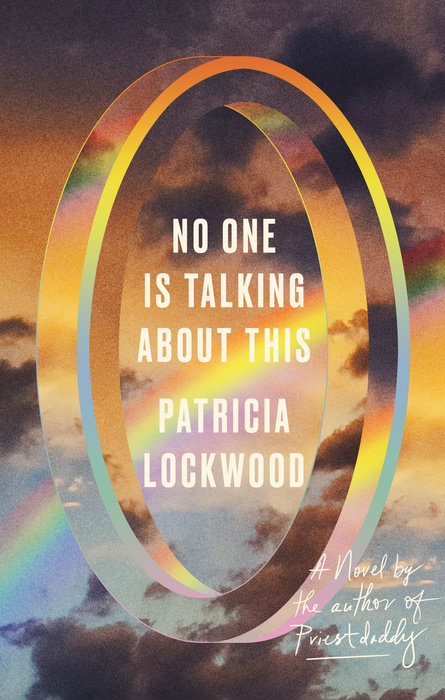
No One Is Talking About This
By Patricia Lockwood
Published by Penguin Random House / Riverhead Books
In this genre-defying book, a woman who has recently been elevated to prominence for her social media posts is already struggling to grapple with the absurdity of what she terms “the portal” in the face of looming existential threats, when a personal tragedy pierces the fray of her attempts to lose herself ever deeper into the void. As real life and its stakes collide with the antics of the portal, the woman confronts a world that seems to contain both an abundance of proof that there is goodness, empathy, and justice in the universe, and a deluge of evidence to the contrary.
About Patricia Lockwood
-
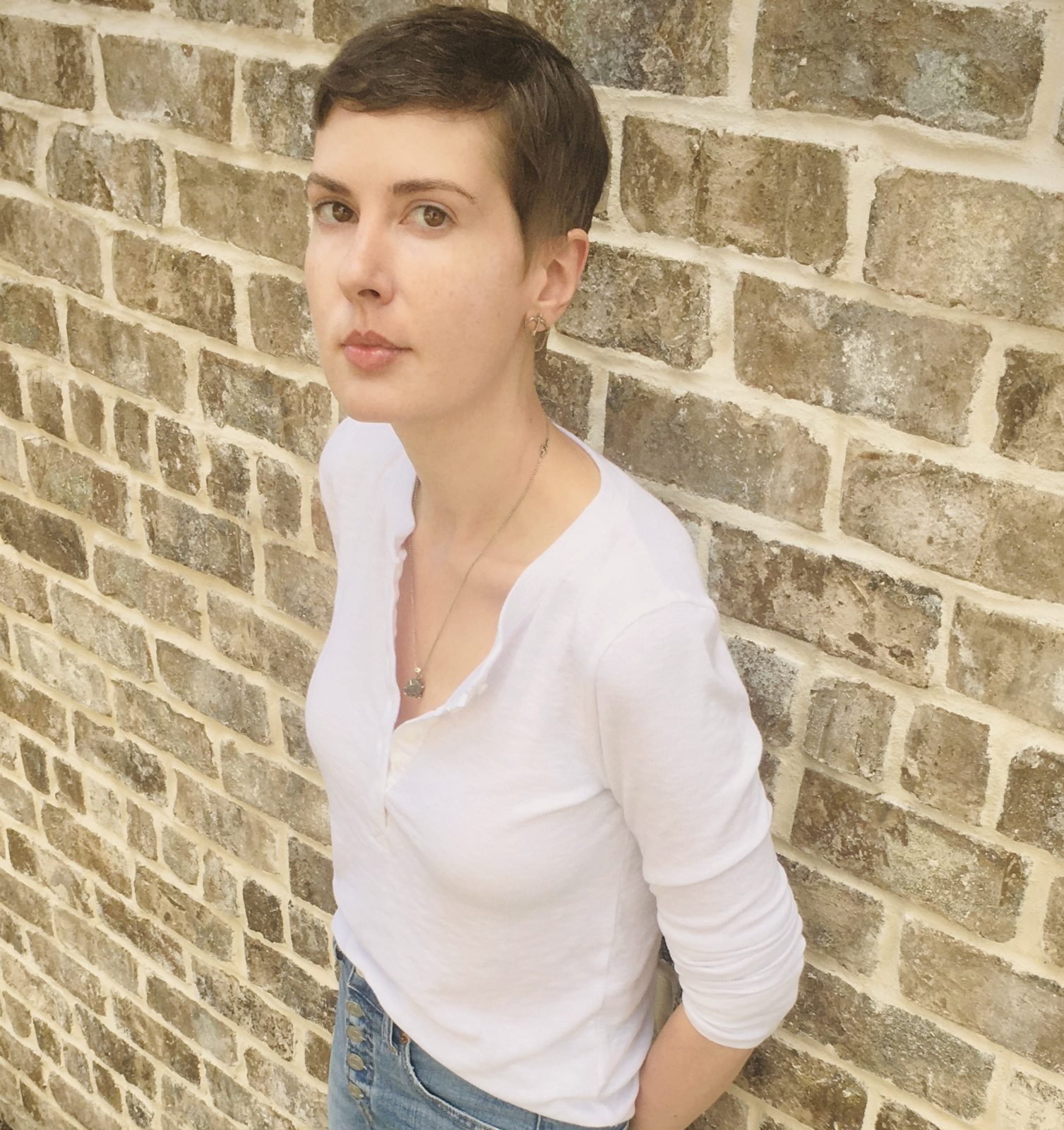
Patricia Lockwood
Patricia Lockwood
Patricia Lockwood was born in Fort Wayne, Indiana and raised in all the worst cities of the Midwest. She is the author of the novel No One Is Talking About This, a 2021 Booker Prize finalist, and the memoir Priestdaddy, which was named one of the ten best books of 2017 by the New York Times Book Review, and two poetry collections, Balloon Pop Outlaw Black and Motherland Fatherland Homelandsexuals, a New York Times Notable Book. Lockwood’s writing has appeared in the New York Times, the New Yorker, the New Republic, and the London Review of Books, where she is a contributing editor.
Photo Credit: Grep Hoax
